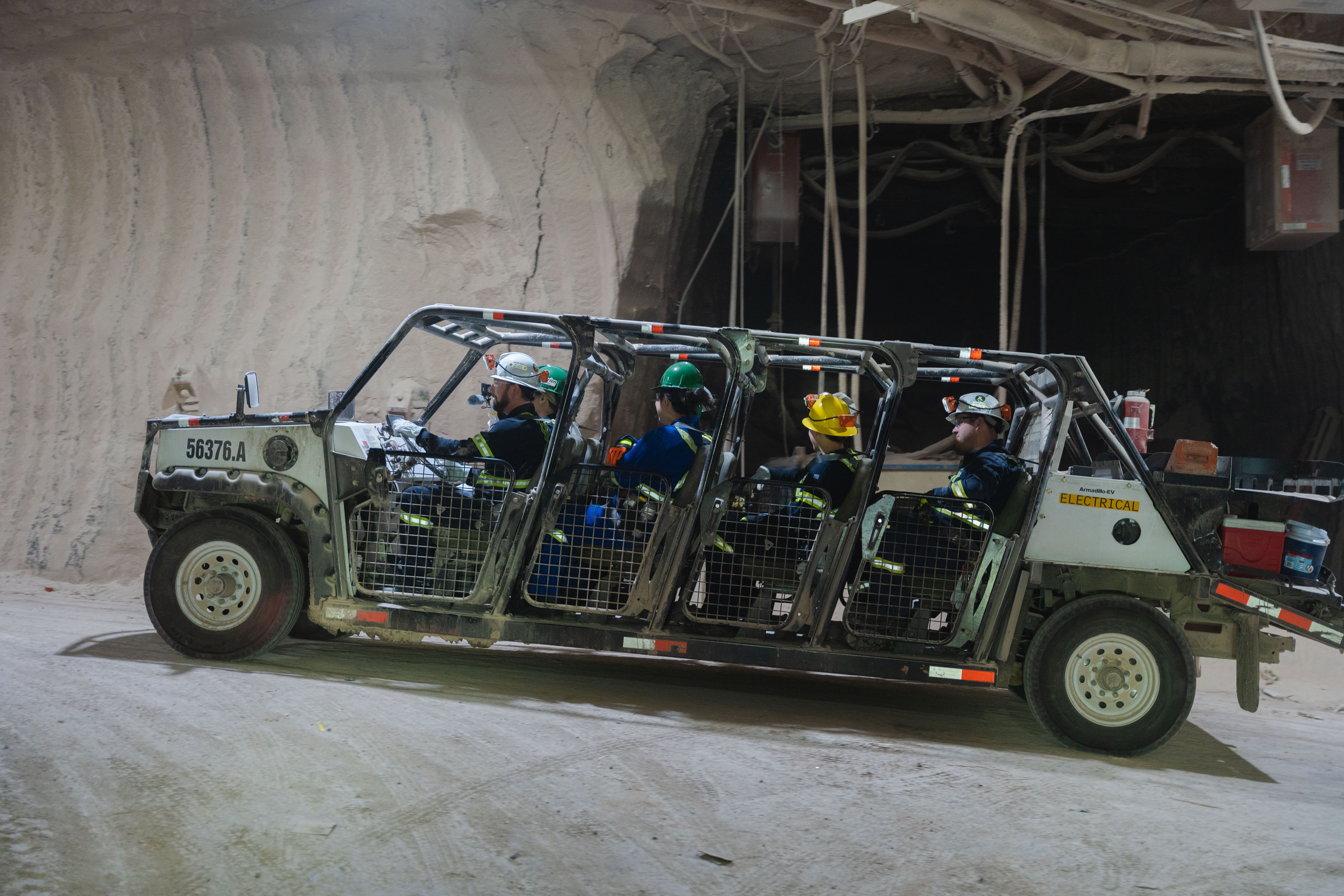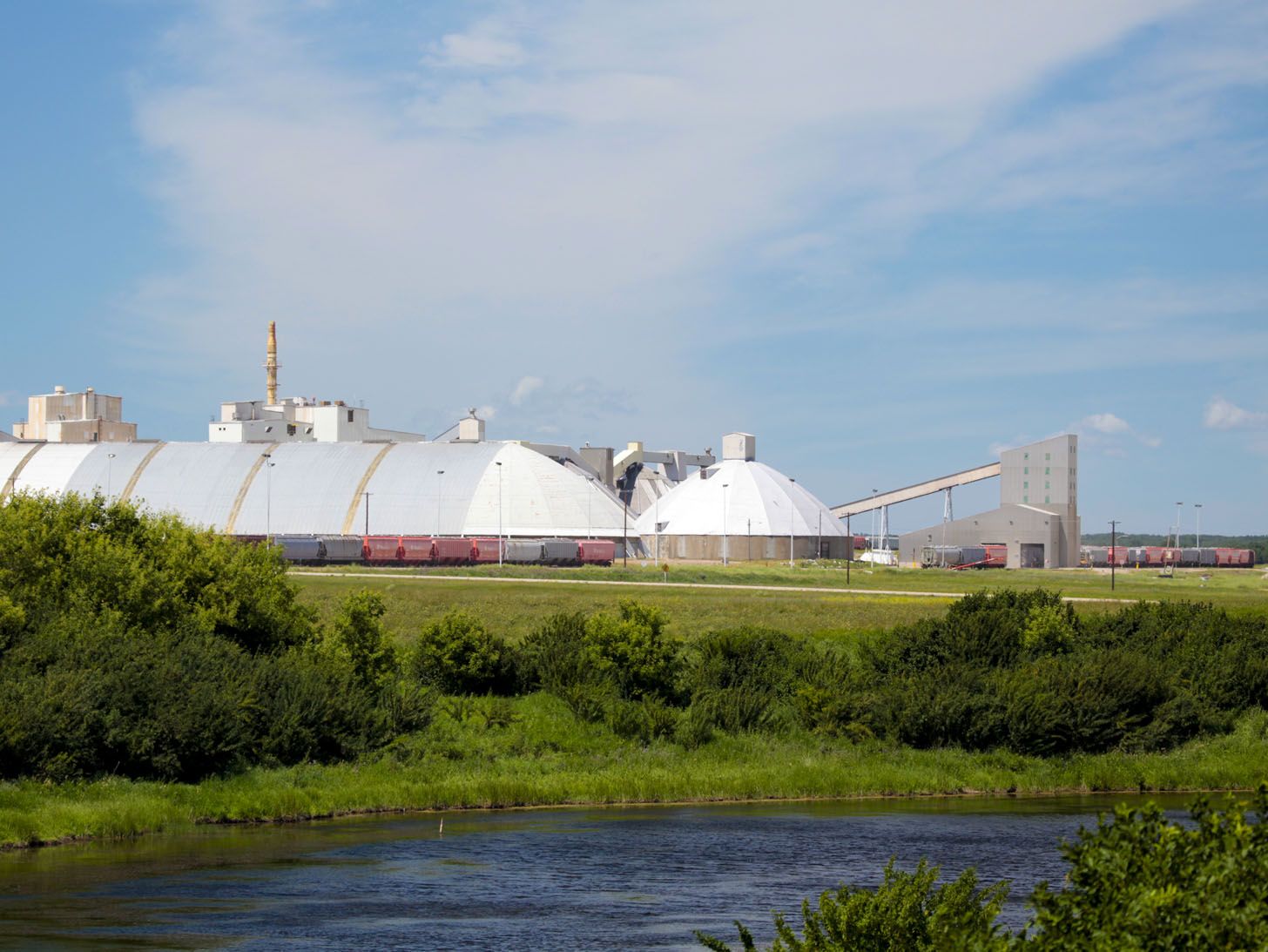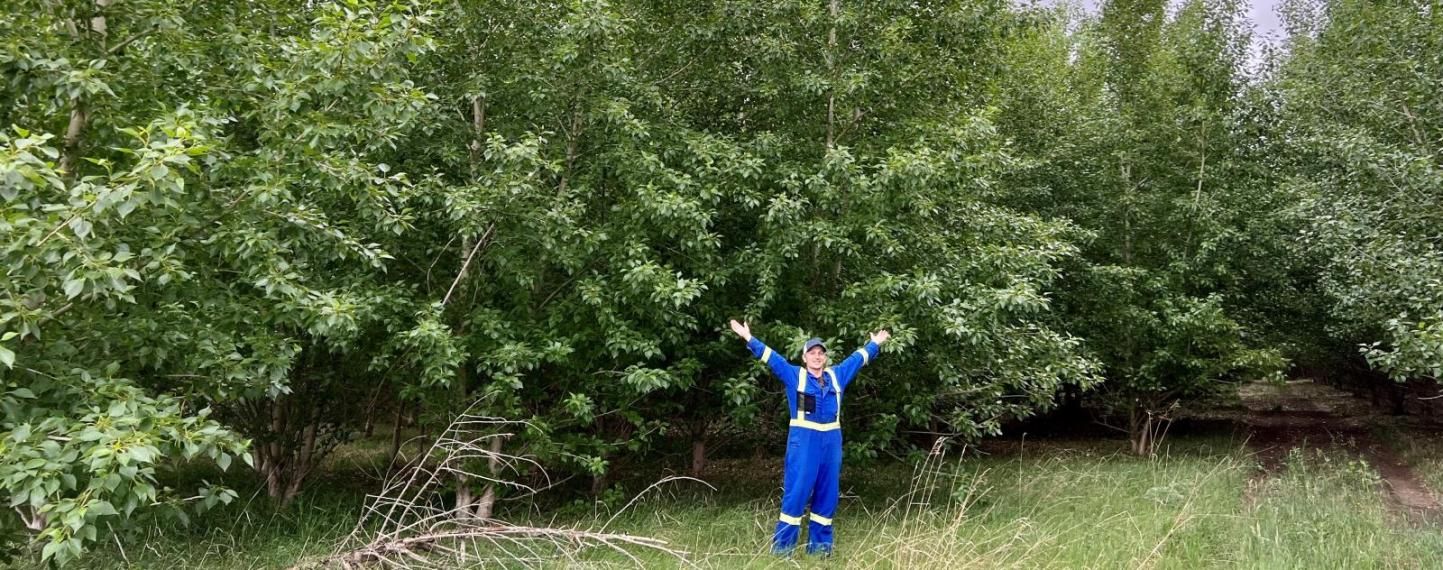
Nutrien transforms local industrial site into 17-hectare forest
An innovative reclamation process piloted at Nutrien’s Fort Saskatchewan facility uses phosphogypsum -- a gypsum byproduct of the phosphate fertilizer industry – to create thriving forests.
The facility has planted 44,000 trees on 20 hectares of phosphogypsum to date. On June 5, 2023, in partnership with Project Forest and Trees for Life, the site began planting an additional 26,000 hybrid poplar trees spanning 17 hectares.
The trees will be planted in soil created from phosphogypsum. Very large piles of phosphogypsum (also known as “stacks”) are typically reclaimed by covering them with soil and seeding them to a grass mixture. At this facility, afforestation techniques are being used as an improved approach for reclamation. The tree plantations are not only aesthetically pleasing; they bring significant environmental benefits including new wildlife habitat, a stronger local ecosystem, and carbon sequestration.
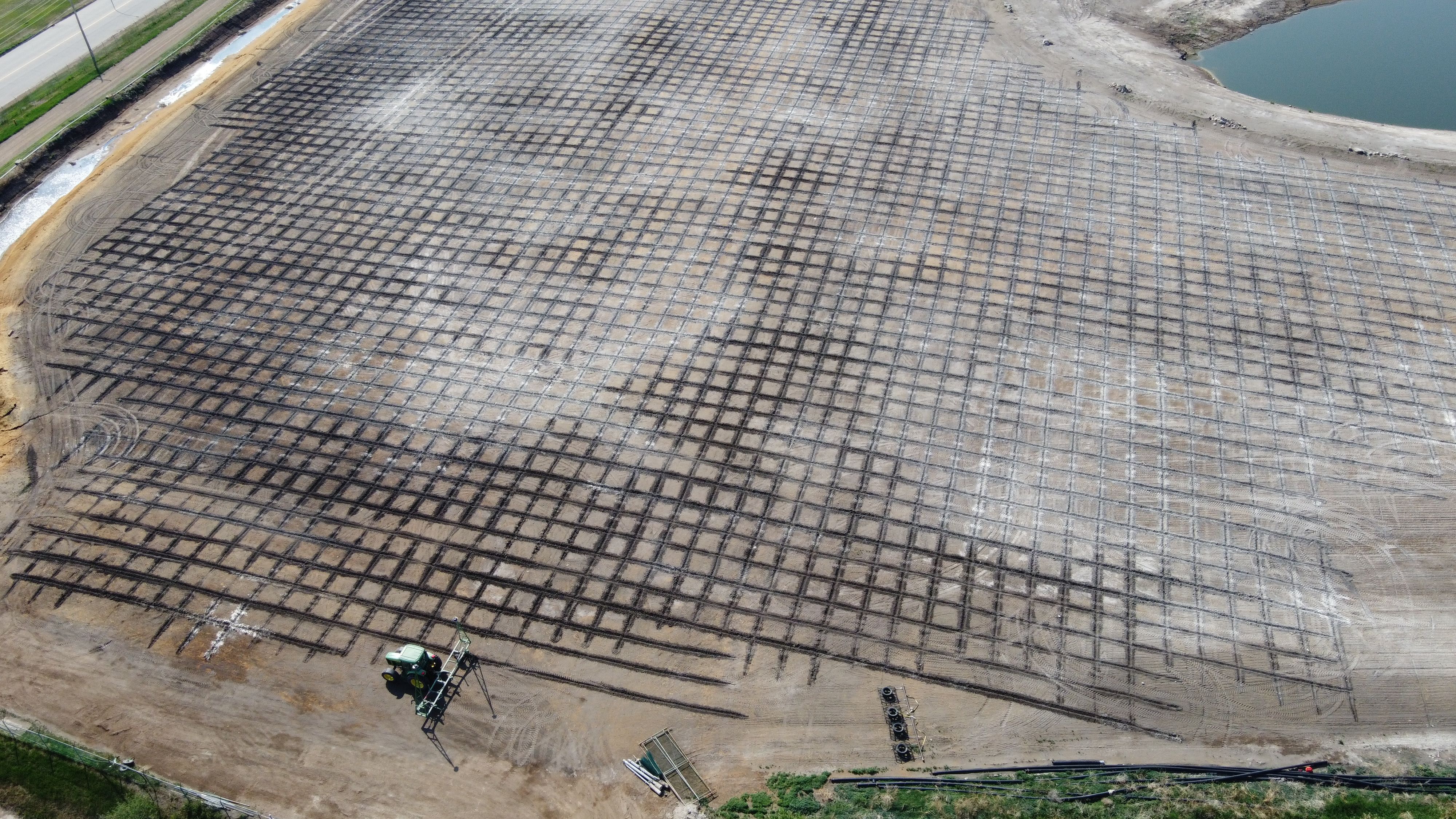
Since 2005, Nutrien has partnered with the University of Alberta to develop the best strategy for reclaiming stacks of gypsum. Ongoing research and expertise from the Canadian Forest Service has led to the development of this afforestation protocol.
“Through ongoing reclamation, we’re transforming historically unusable areas at our site into productive forests with innovative techniques and a collaborative mindset,” said Ted Sawchuk, General Manager of Nutrien’s Fort Saskatchewan Nitrogen facility. “We’re harnessing the power of forests and the many benefits they bring to the environment.”
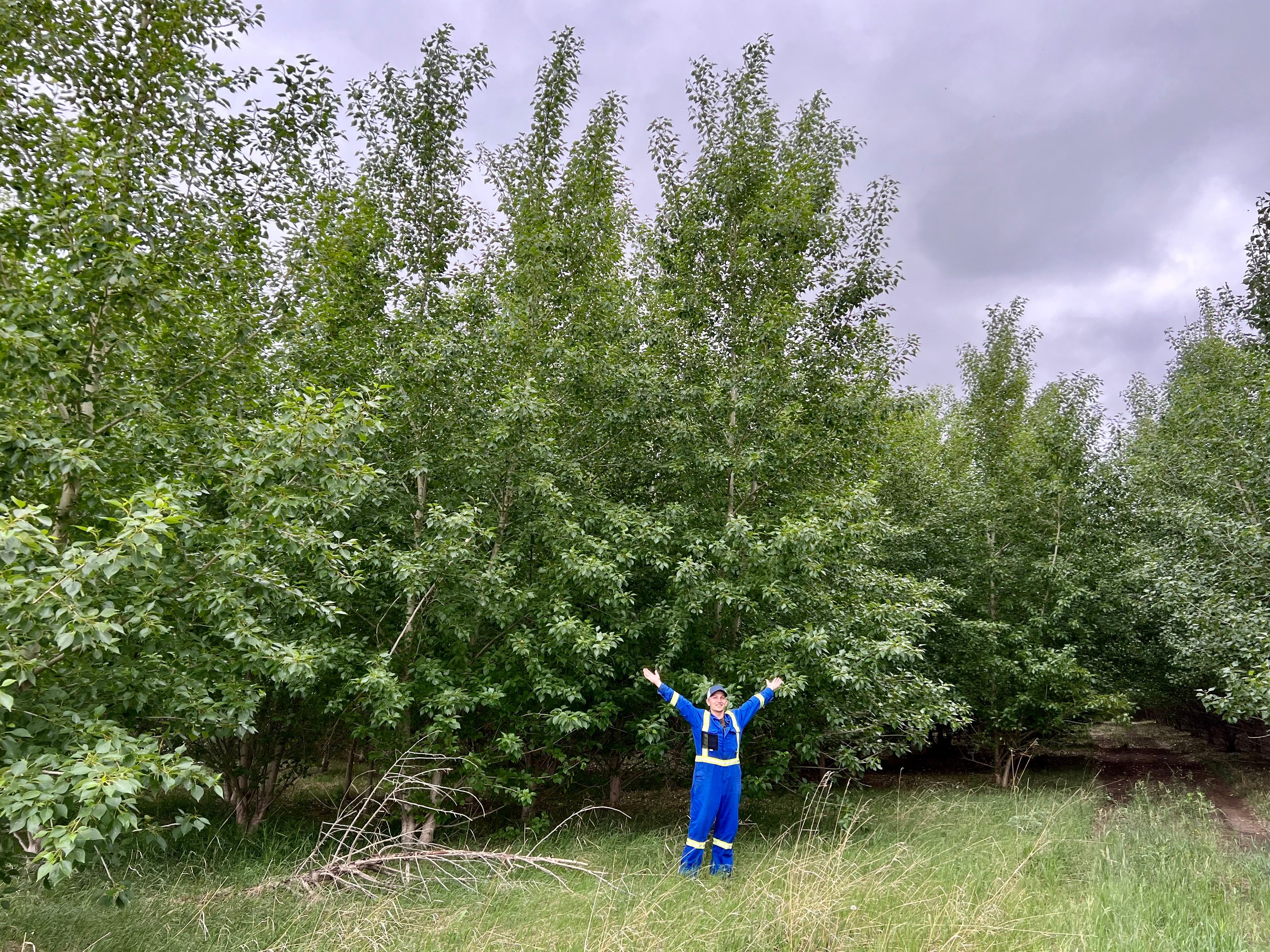
Collaboration is key
This is Project Forest’s first industrial afforestation project, and they’re welcoming Nutrien as their newest Platinum Forest Partner. “The rapid growth of the Okanese poplar allows companies like Nutrien to use trees as natural infrastructure to improve soil quality, ecosystem health and maximize the carbon sequestration potential of their property,” said Mike Toffan, Project Forest’s Executive Director. “We’d like to thank our project partners and are excited to watch the growth of this industrial forest.”
Nutrien’s Fort Saskatchewan site expects that the trees will grow from 1.5 to two meters a year.
Related stories
